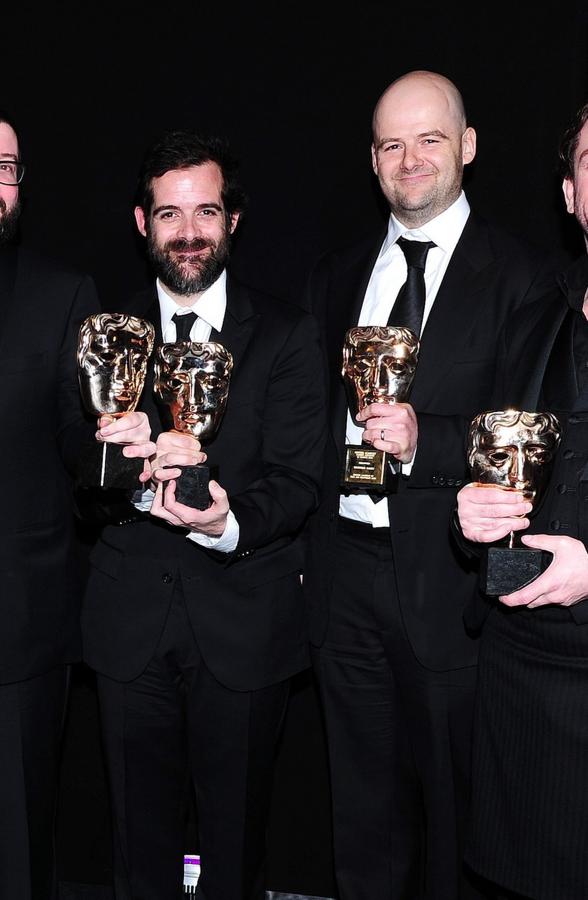The Houser brothers didn't just make video games. They made blockbusters—controversial, cinematic, culture-shifting epics that redefined what gaming could be. While other studios chased trends, Rockstar Games, the company they founded, made its name by defying them. With each new title, Sam and Dan Houser pushed boundaries—technical, artistic, and social—until the entire industry was playing catch-up.
At the heart of their empire is "Grand Theft Auto," the most profitable video game franchise in history. What started as a scrappy, top-down crime simulator became an open-world juggernaut that earned more than $1 billion in just three days with 2013's "GTA V." Across all iterations, the series has generated over $10 billion in revenue—more than most blockbuster film franchises, and without ever needing a sequel every year.
Behind the scenes were two brothers obsessed with detail, legacy, and control. Sam served as the creative director and brand architect, while Dan wrote the scripts and lore that turned GTA into something more than a game—it became a cultural mirror. The success has earned each Houser brother a net worth of $250 million, yet their true legacy is measured not in dollars but in the way they rewrote the rules of interactive storytelling.
Early Life and Creative Influences
Sam and Dan Houser grew up in affluent London in the 1970s and '80s. Their father was a successful attorney and their mother, Geraldine Moffat, was a television actress who appeared in films like "Get Carter."
It was the early 1980s, and Dizzy Gillespie, the legendary jazz musician, had just been introduced to Walter Houser, who co-owned a jazz joint called Ronnie Scott's club in London's Soho district. Gillespie asked Walters' son, Sam, what he wanted to be when he grew up. Sam, who was not yet a teenager, did not even pause before replying: "A bank robber."
Sam was obsessed with American hip-hop, gangster movies, and the mythology of outlaws. Dan was more academic, studying geography at Oxford. Despite their privileged background, both brothers were drawn to the grit and chaos of underground culture—a fascination that would fuel their creative work for decades.
The Birth of Rockstar Games
Sam landed at BMG Interactive, where he helped launch the Spice Girls and directed early music videos. But his real interest was in gaming. In the mid-1990s, a Scottish studio pitched him a prototype game called "Race and Chase"—a cops-and-robbers concept with open-world mechanics. Sam flipped the premise on its head: instead of playing as cops, players would become criminals. The game became "Grand Theft Auto," and it was released in 1997 to modest success and major outrage.
Soon after, BMG sold off its gaming division. Sam seized the opportunity. He and Dan co-founded Rockstar Games in 1998, building a brand around boldness, rebellion, and attitude. They modeled the company on Def Jam Records—cool, edgy, and untouchable. Sam served as the visionary, overseeing creative direction and company culture. Dan was the head writer, scripting the intricate storylines that would become a GTA signature.

Sam Houser, Dan Houser (Photo by Ian West/PA Images via Getty Images)
Dominating the Gaming World
As the series evolved, so did the ambition. "GTA III" introduced the fully 3D open world and set a new benchmark for gaming. "Vice City" and "San Andreas" expanded the formula into sprawling satirical playgrounds. "GTA IV" broke launch records. Then came 2013's "GTA V"—a masterpiece of scale and detail, developed over five years at a cost of $250 million. It earned $1 billion in its first three days. A decade later, it remains one of the highest-grossing entertainment products of all time.
A Culture of Controversy and Perfectionism
But Rockstar's success came at a price. The company developed a reputation for brutal crunch culture, with 70- to 100-hour workweeks and intense secrecy. Former employees described the Housers as demanding, even explosive. Dan was said to rewrite entire scripts himself; Sam was known to obsess over the most granular creative details. Their perfectionism delivered results—but also lawsuits, staff burnout, and controversy.
Publicly, the Housers remained enigmatic. They rarely gave interviews. They didn't appear at game expos. They cultivated mystery while the games spoke for themselves—each one more immersive, provocative, and profitable than the last. Rockstar didn't chase trends. It set them.
The End of an Era and the Future of GTA
In 2020, after more than two decades at Rockstar, Dan Houser left the company. No formal reason was given. His departure marked the end of an era—but not the end of the franchise. GTA VI, in development for years, is one of the most anticipated games in history. Expectations are astronomical.
The story of Rockstar is one of paradox: corporate yet anti-establishment, outrageous yet calculated, artistic yet ultra-commercial. And it's all built on the vision of two brothers who dared to imagine a world where players didn't follow the rules—they broke them.
Their creation may be virtual, but the fortune it generated is very real. And their impact on gaming, pop culture, and global entertainment is permanent.
/2019/12/sam-houser.png)
/2019/11/dan-houser2.jpg)
/2019/06/dm.jpg)
/2010/05/Shigeru-Miyamoto.png)
/2014/06/GettyImages-135478301.jpg)
/2015/04/GettyImages-611034312.jpg)
/2009/11/George-Clooney.jpg)
/2017/02/GettyImages-528215436.jpg)
/2019/04/rr.jpg)
/2009/09/Brad-Pitt.jpg)
/2020/06/taylor.png)
/2009/09/Cristiano-Ronaldo.jpg)
:strip_exif()/2015/09/GettyImages-476575299.jpg)
:strip_exif()/2009/09/P-Diddy.jpg)
/2020/01/lopez3.jpg)
/2020/04/Megan-Fox.jpg)
/2018/03/GettyImages-821622848.jpg)
/2020/02/Angelina-Jolie.png)
/2019/11/GettyImages-1094653148.jpg)
/2019/10/denzel-washington-1.jpg)
/2009/09/Jennifer-Aniston.jpg)